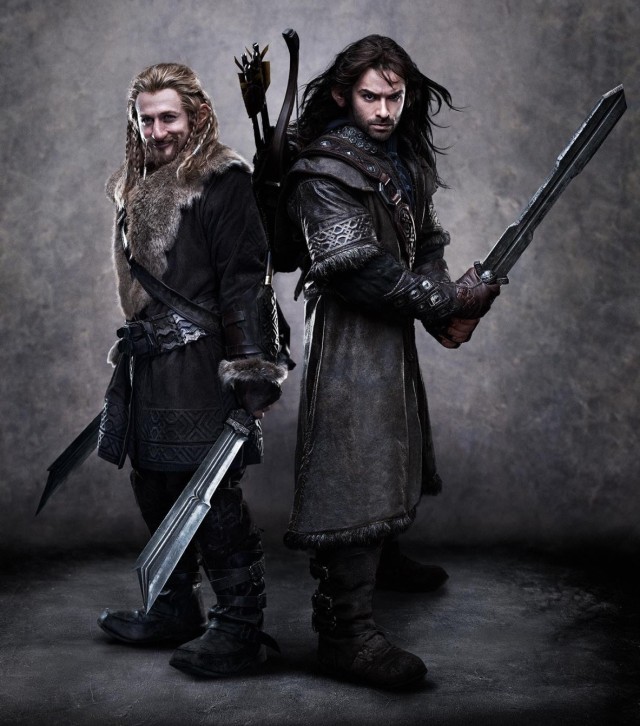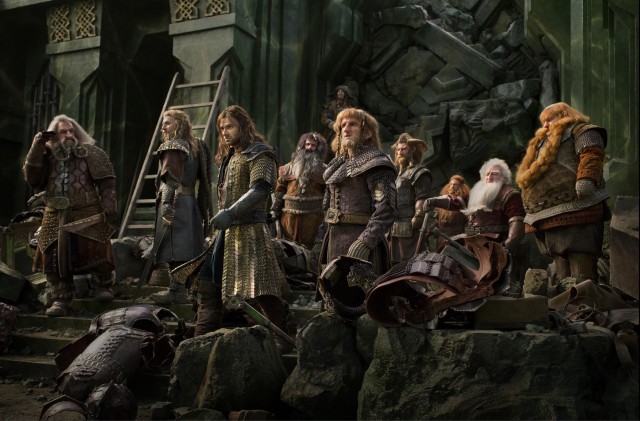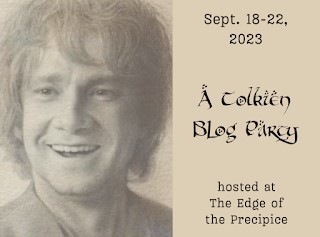MVP, an abbreviation of “most valuable player” or “most valuable person”, is typically used in the world of sports. When a team member goes above and beyond for their respective team, they usually earn this title. Last year, when I was introduced to The Hobbit trilogy, the Company reminded me of a football team. With Gandalf in the role of coach and Thorin in the quarterback position, Kili is the one who, in my opinion, would be the Company’s MVP. In my “Flaming Hot…5 Reasons Why” tag post I published earlier this year, I stated Kili is my favorite character from The Hobbit trilogy. I even mentioned in that post how I felt Kili was the MVP of Middle-Earth. But claiming Kili is the MVP of Tolkien’s Middle-Earth is not purely based on personal bias. In fact, I will use examples from the trilogy to prove that Kili has, in my eyes, earned the title of MVP!

Humbleness
When I watched The Hobbit trilogy for the first time, I did not know Kili was a prince. I didn’t even know he and Thorin were related. So, imagine my shock when Thorin told Kili and Fili they were his “sister’s sons” in The Hobbit: The Battle of the Five Armies! Kili’s humbleness is the reason for my shock. Up until that aforementioned moment between Thorin and his nephews, Kili never brought up his royal lineage. Even in The Hobbit: The Desolation of Smaug, when he was interacting with Tauriel in Rivendell’s dungeon, Kili didn’t use his royal connections to impress her. Yes, he did bring up his mom in his and Tauriel’s conversation. But Kili never stated how he and his mom were related to Thorin.
Kili’s humbleness goes beyond his royal heritage. In The Hobbit: The Desolation of Smaug, after his leg became injured, Kili didn’t want any help from the Company. Anytime his health was questioned, Kili would say “I’m fine”. When Thorin instructed Kili to stay in Lake Town because of his injury, Kili was frustrated he couldn’t continue on the journey. Even when he was forced to flee from Lake Town in The Hobbit: The Battle of the Five Armies, Kili wanted to walk by himself, not wanting to rely on anyone for support. This sequence of events shows how Kili didn’t want to be treated differently from the other members of the Company. He also didn’t want his injury to hold the Company back. Kili, simply, wanted to do his part and help his uncle and the Company in any way he could.

Having More Than One Skill
Throughout The Hobbit trilogy, each member of the Company had a skill to share, which allowed the Company to get closer to their ultimate goal. For Kili, he ended up having more than one skill to offer. Not only was he a swordsman, he was also an archer. In order to master just one of these skills, it requires many hours of training and a large amount of dedication. To master both sets of skills, Kili had to double his training hours and work twice as hard. The Hobbit trilogy consistently presents Kili’s talents, giving him opportunities to prove his worth as a competent swordsman and archer. One example is when Kili faced Orcs, as using his archery skills allowed him to showcase his mastery of hand eye coordination.


Becoming the Voice of Reason
Kili was not known as “the voice of reason” in The Hobbit trilogy. He did not often make statements that would make others think “he has a point”. But in The Hobbit: The Battle of the Five Armies, Kili found the courage to become “the voice of reason”, being one of the few people to stand up to Thorin during his “dragon sickness” period. While in Erebor, Thorin ordered the Company to build a fortress, in order to prevent Erebor from being taken again. Kili points out how Thorin is not the only one who has lost his home, stating “The people of Lake Town have nothing. They came to us in need, they have lost everything”. Despite Thorin failing to acknowledge Kili’s point by reminding his nephew how he lost Erebor, Kili wasn’t dissuaded by his uncle’s stubbornness. After Thorin snapped out of his “dragon sickness”, Kili stands up to his uncle again, saying “I will not hide behind a wall of stone while others fight OUR BATTLES FOR US! It is not in my blood, Thorin”. This time, Thorin agreed with his nephew, leading the Company into battle. When he became “the voice of reason”, Kili was honest and told Thorin what he needed to hear. Even though he was “the voice of reason” for a short period of time, Kili’s statements provided a glimpse into the kind of leader he could have been.

Taking One for the Team
When attempting to escape the Rivendell dungeon in The Hobbit: The Desolation of Smaug, the Company needed to open an underwater gate. Kili volunteered to open the gate, climbing out of the water and onto the top of the gate, where the gate’s lever was located. During this process, an Orc shot Kili in the leg, causing Kili to be the only member of the Company to become seriously injured. After the Company’s escape, Tauriel and the audience learn the arrow that shot Kili contained fatal poisons. As the story of The Hobbit: The Desolation of Smaug continued, Kili’s health deteriorated, bringing him on the verge of death. Yet, when a group of Orcs invaded Lake Town, Kili and Tauriel worked together to defeat an Orc. These two scenarios show how Kili took one for the team, risking his health and safety by putting the well-being of others before himself.

In the 1971 biopic, Evel Knievel, Evel Knievel states “heroes know who they are”. He made this statement to make a point how true heroes don’t need to show off their hero status. The more I think about Evel’s quote, the more the quote fits who Kili is. Kili never flaunted his royal title because he didn’t think doing so would be necessary. What Kili did instead was let his actions and choices speak for themselves. As I said in the introduction, the Company in The Hobbit trilogy reminded me of a football team. With Kili as the MVP, that means he’d be the one to not only receive a brand-new truck at the end of the game, but also proclaim his team was going to a theme park at the end of the season. But anyone who knows Kili’s story would know Kili didn’t get to do any of these things. As I conclude this editorial, I would like to say that whenever I think of the abbreviation, MVP, I will think of Kili carrying the title of “most valuable prince”.
Have fun in Middle-Earth!
Sally Silverscreen

Fascinating! Kili’s my favorite, too. 🙂
LikeLiked by 1 person